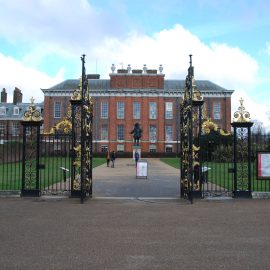
What makes a literary figure’s work stand the test of time? How does an artist’s recognition evolve from their own era into the following centuries?
In his book Shakespeare, Bill Bryson explores William Shakespeare’s legacy through fascinating historical details. He reveals how the legendary playwright’s recognition grew from moderate acclaim during his lifetime to his current status as one of history’s most influential writers.
Continue reading to discover the remarkable journey of how Shakespeare’s plays and linguistic innovations permanently shaped literature, theater, and the English language.
William Shakespeare’s Legacy
In his book, Bryson details William Shakespeare’s legacy. His literary achievements, while recognized during his lifetime, did not receive the full acclaim they deserved until after his death. During Shakespeare’s era, contemporaries often favored playwrights such as Beaumont and Fletcher over Shakespeare, despite acknowledging his talent for crafting plays.
The journey to Shakespeare’s current status as a literary giant was not immediate or straightforward. Throughout history, his works experienced varying levels of attention—from periods of neglect to times when his plays were modified or incorrectly attributed to others. The turning point came with the publication of the First Folio in 1623, a crucial compilation by John Heminges and Henry Condell that preserved many of Shakespeare’s plays that might otherwise have been lost to time.
From this point forward, appreciation for Shakespeare’s literary contributions grew steadily. His works have maintained their influence through the centuries, continuing to inspire audiences, writers, and scholars alike, cementing his position as one of history’s most significant literary figures.
Shakespeare’s Contributions to the Language
William Shakespeare’s legacy includes his profound influence on the English language through his innovative and expressive additions. His linguistic legacy includes numerous distinctive words and expressions that continue to serve as a rich source of memorable and symbolic language.
Bill Bryson highlights Shakespeare’s exceptional impact on the evolution of English, noting his remarkable talent for word invention and his willingness to experiment with new linguistic forms and sentence structures. During the sixteenth century, the English vocabulary underwent considerable expansion, with Shakespeare playing a vital role in enriching the language’s diversity.
Bryson emphasizes how Shakespeare’s contributions to modern English have become essential elements of the language. Shakespeare achieved this by incorporating regional dialects, inventively modifying traditional sentence structures, and masterfully employing rhetorical devices. According to Bryson, Shakespeare’s genius manifests not just in his storytelling abilities, but in his lasting influence on the English language itself.
Activities for Reflection and Application
- Start a blog or social media page dedicated to highlighting emerging talents in various fields. Write about local musicians, small theater troupes, or writers who haven’t hit the mainstream yet. Your platform could be the first to shine a light on a future star, much like how Shakespeare’s work was only fully recognized posthumously.
- Create a personal journal entry reflecting on a time when your work or efforts were overshadowed by a peer’s. Consider what factors contributed to this and how public perception played a role. This exercise can provide personal insight into the dynamics of recognition and appreciation, mirroring the historical underappreciation of Shakespeare compared to his contemporaries.
- You can explore the impact of cultural shifts on artistic recognition by tracking a current artist’s popularity over time. Start by choosing an artist whose work you appreciate and create a simple spreadsheet to log mentions of their work in various media outlets, social media platforms, and public forums. Over months or years, you’ll be able to analyze trends and perhaps predict future recognition patterns, mirroring the historical fluctuations you learned about.
- Create a digital time capsule of your personal writings and favorite works to preserve them for the future. Use a free online service to upload your poems, stories, or journals, and set a date far in the future for when they can be accessed. This mirrors the preservation of Shakespeare’s works and ensures your own creative legacy.
- Dive into the world of Elizabethan theatre by starting a reading group focused on plays from that era. Gather friends or join online communities interested in Shakespeare and his contemporaries. Discuss the plays, their historical context, and the role of figures such as Heminges and Condell in preserving these works. This can deepen your appreciation for the material and the efforts behind its survival.
- Start a community project to transcribe local historical documents into digital formats. This can be a collaborative effort with local libraries or historical societies to ensure the longevity of important community texts. You could organize small groups to type out handwritten records or scan them using smartphone apps designed for digitizing documents.
- Engage with the ripple effect of Shakespeare’s influence by writing a short story or poem that incorporates elements from his works. Choose a character, plot device, or famous line from a Shakespeare play and use it as a foundation for your own creative piece. For instance, you might write a story about a modern-day Hamlet grappling with indecision in a tech-driven world.






